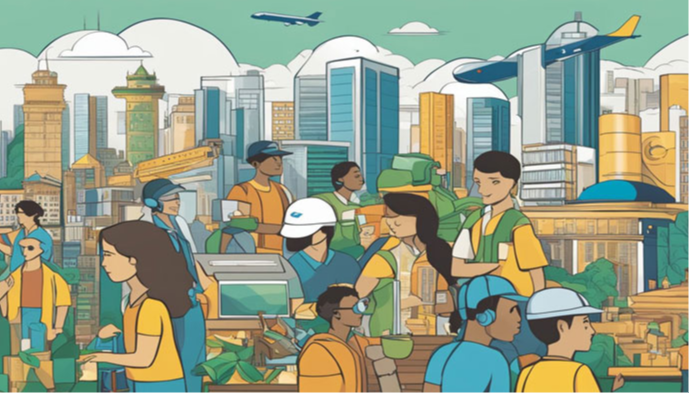
Labor market in Brazil. Image: brazilblogged.com
by Maria Josefina Arce
Under the presidency of Luiz Inácio Lula da Silva, which began in January 2023, Brazil has registered a noticeable decrease in unemployment, which in the last quarter was 6.4%, the lowest rate since 2013.
According to the Brazilian Institute of Geography and Statistics, more than one million citizens have entered the labor market in recent months, an opportunity to improve their living conditions.
It is a fact that the South American giant is currently showing a good pace of job creation. Last September alone, 247 thousand new jobs were created, an increase of 21% over the same period last year.
The services sector was the main source of new jobs, followed by industry, trade and construction.
During his two previous administrations, from 2003 to 2010, Lula da Silva also emphasized job creation to help lift millions of Brazilians out of hunger and poverty.
Official statistics show that more than 15 million formal jobs were created during these two presidential terms.
But the two-year mandate of Michel Temer, after the parliamentary coup in 2016 against then President Dilma Rousseff, and the four-year mandate of Jair Bolsonaro, from 2019 to 2022, led to the destruction of the social policies implemented by the Workers' Party governments.
The ultra-right-winger left at the end of his administration a country with an unemployment rate of 13.2% and his return in 2021 to the UN World Hunger Map, from which he had left in 2014.
The arrival for the third time of Lula da Silva to the Planalto Palace has meant a change in Brazilian territory. Social programs for the benefit of the historically dispossessed sectors have returned.
Brazil is back, as the president has pointed out, to work in favor of all citizens, to rebuild the country and to advance economically, but with social inclusion.

